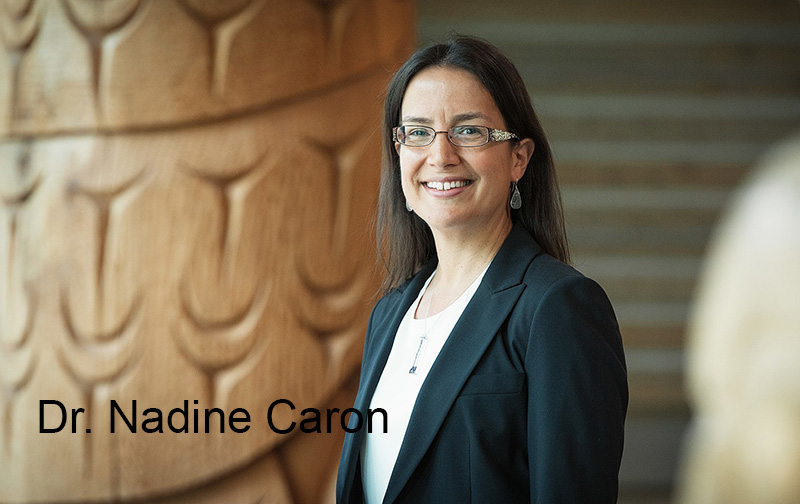Indigenous Innovator: Dr. Nadine Caron's Quest for Equity in Cancer Care and Research
Written by Tom Raycove, CEO Disrupted Logic Interactive Inc.
Black History Month and Its Role in Understanding the Experiences of Indigenous Peoples
Black History Month is a time to celebrate the contributions and achievements of black people, but it is also an opportunity to expand our understanding of the experiences of other marginalized communities, including Indigenous peoples. For Indigenous peoples in Canada, the legacy of colonialism and ongoing systemic discrimination has had a profound impact on their health and well-being, including their experiences with cancer.
Recently I had an opportunity to talk to Rashid Bux from BioMark Diagnostics. He provided me a broader appreciation of underserved communities especially in cancer care management. These communities typically have lower screening and clinical trial participation rates. Most patients from these communities are diagnosed at late stage where there are limited treatment options.
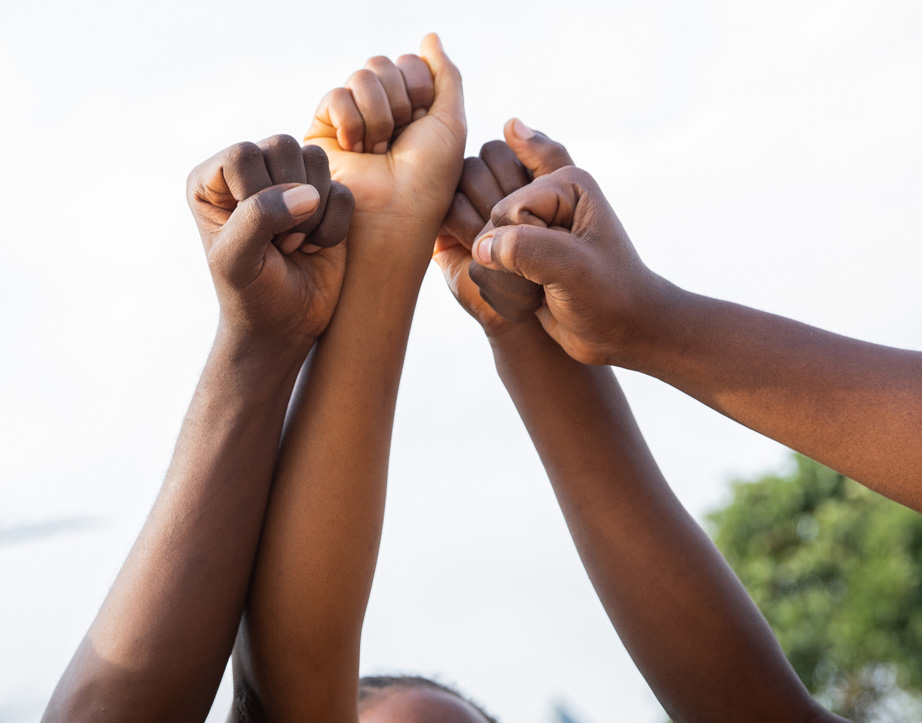
He directed me to some inspiring work being done by Dr. Nadine Caron.
Dr. Nadine Caron is a leader in addressing these issues, working to make cancer research and care more equitable and inclusive for Indigenous peoples in Canada. As a urologic surgeon and researcher, Dr. Caron has a deep understanding of the challenges faced by Indigenous peoples in accessing cancer care, and she is working to create solutions that meet their needs. Her work is especially important in light of the higher rates of cancer and other chronic diseases in Indigenous communities, as well as the persistent disparities in health outcomes that result from systemic barriers to care.
Black History Month provides a unique opportunity to reflect on the experiences of Indigenous peoples, including the barriers they face in accessing cancer care and the unique challenges they face as a result of their cultural and historical experiences. By learning about the work of leaders like Dr. Caron, we can gain a deeper understanding of these challenges and work to create more inclusive and equitable systems of care.
Dr. Nadine Caron
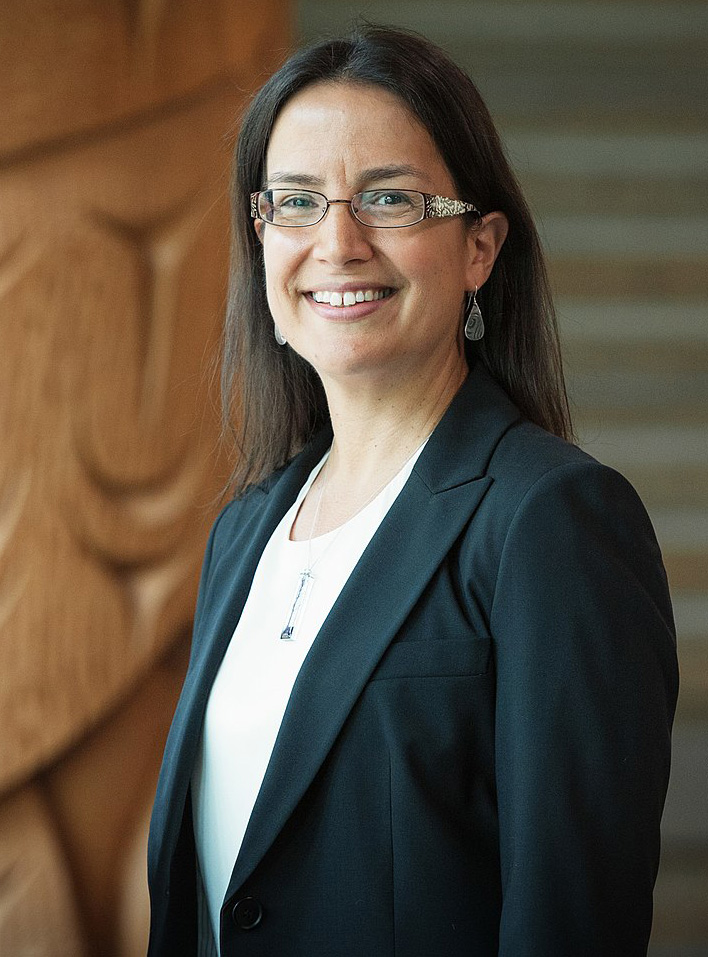
Dr Nadine Caron is a trailblazer in the field of cancer research and care. As an Indigenous woman, she is dedicated to making the medical industry more equitable and inclusive for Indigenous peoples in Canada. With her background as both a researcher and a physician, Dr Caron brings a unique perspective to the field that is rooted in her experiences as a member of the Indigenous community.
Through her work, Dr Caron is committed to addressing the disparities that exist in cancer research and care for Indigenous peoples.
She has been working tirelessly to raise awareness about the challenges faced by Indigenous peoples in accessing the care and treatment they need, and is dedicated to finding solutions to these problems. Dr Caron’s research has shown that Indigenous peoples in Canada face significant barriers in accessing cancer care, including poverty, lack of access to quality healthcare, and systemic discrimination.
Dr Caron is also a leader in developing culturally appropriate cancer care programs for Indigenous peoples. She has worked closely with Indigenous communities to design programs that take into account the cultural, spiritual, and historical experiences of Indigenous peoples. By doing so, Dr Caron is helping to create a more inclusive and equitable healthcare system that better meets the needs of Indigenous peoples.
In addition to her work as a researcher and physician, Dr Caron is also a role model and mentor to young Indigenous people who are interested in pursuing careers in science and medicine. She is dedicated to inspiring the next generation of Indigenous scientists and healthcare professionals, and is committed to breaking down the barriers that prevent Indigenous peoples from pursuing their dreams. Through her work, Dr Caron is helping to create a more inclusive and equitable future for Indigenous peoples in Canada and is making a positive impact on the lives of Indigenous peoples across the country.
The Challenges and Obstacles Faced by Indigenous Peoples in Science and Medicine
Indigenous peoples have faced numerous challenges and obstacles in pursuing careers in science and medicine. This is due to a range of historical, cultural, and systemic barriers, including colonialism, cultural genocide, and systemic discrimination. The result is a lack of representation and opportunities for indigenous peoples in these fields.
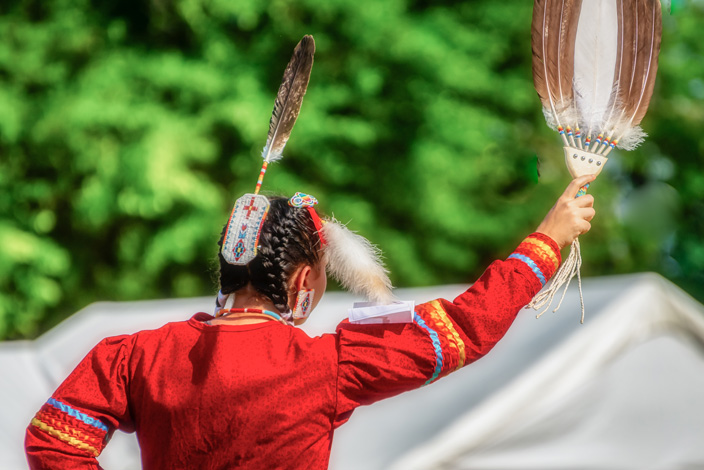
One of the biggest challenges faced by indigenous peoples is access to education and training. Many indigenous communities are located in remote areas and lack access to quality educational institutions, making it difficult for indigenous peoples to obtain the necessary education and training required to pursue careers in science and medicine. Furthermore, indigenous peoples often face financial barriers, such as the high cost of tuition, books, and other related expenses.
Another challenge faced by indigenous peoples in science and medicine is discrimination. Indigenous peoples often face discrimination and bias within these fields, which can make it difficult for them to pursue their careers and succeed. This includes a lack of mentorship and support, which can be essential for success in these fields. Furthermore, indigenous peoples may also face cultural barriers, such as a lack of understanding and respect for their traditional knowledge and ways of knowing.
Indigenous peoples often face additional challenges related to their identities as indigenous peoples. They may face resistance from others who do not recognize the validity of indigenous perspectives and ways of knowing. This can result in exclusion from decision-making processes, which can have a profound impact on their ability to participate in, and contribute to, science and medicine.
These challenges and obstacles faced by indigenous peoples in science and medicine are significant, but they are not insurmountable. By working to address these barriers and promoting diversity, equity, and inclusion, physicians like Dr. Caron and the scientific and medical communities can help to ensure that indigenous peoples are able to participate and succeed in these fields.
Help Us Celebrate Black History Month By Sharing This Incredible Story
The Need for Diversity and Inclusion to Advance Research and Improve Patient Care
Diversity and inclusion are essential components of any successful industry, including science and medicine. When it comes to research and patient care, the importance of diversity and inclusion cannot be overstated.

Representation of a variety of perspectives and experiences helps to ensure that all patients are well-represented and that research is conducted with a wide range of perspectives and experiences in mind.
In the case of Indigenous peoples, diversity and inclusion are even more crucial. Indigenous peoples have historically faced significant barriers and discrimination within the scientific and medical communities. This has prevented Indigenous peoples from fully participating in the research and care communities, leading to a lack of representation and a failure to address the specific needs and experiences of Indigenous patients.
By including Indigenous peoples in research and patient care, we can improve our understanding of Indigenous health issues and develop more effective treatments and care plans. It is important for Indigenous researchers and physicians like Dr. Nadine Caron to be involved in these efforts, as they bring a unique perspective and understanding of Indigenous health concerns. Their participation helps to bridge the gap between Indigenous communities and the scientific and medical communities, and ensures that Indigenous peoples are well-represented in the research and care communities.
The Significance of Dr. Caron's Work for Black History Month and Inspiring Others to Follow in Her Footsteps
Dr. Nadine Caron’s work as a researcher and physician in cancer research and care is significant not only for Indigenous peoples in Canada, but also for Black History Month. As an Indigenous woman, Dr. Caron faces unique challenges and obstacles in a field that is often dominated by non-Indigenous individuals. However, despite these challenges, she has persevered and become a leader in her field, making significant contributions to the advancement of cancer research and care.
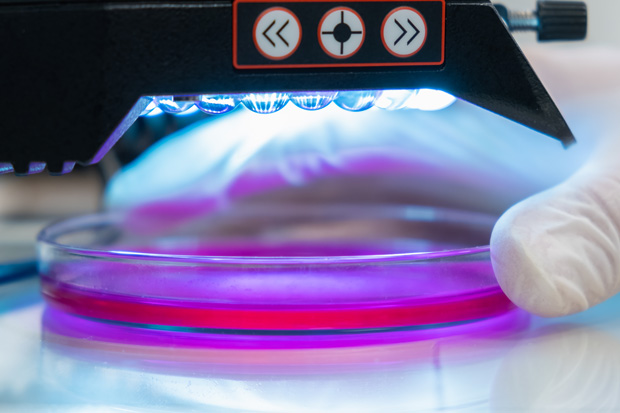
The significance of Dr. Caron’s work lies in her ability to serve as a role model and inspiration to others. She shows that, despite the barriers and obstacles that exist, Indigenous peoples can succeed in science and medicine and make a real impact.
Black History Month is an important time to celebrate the achievements and contributions of black people, including Indigenous peoples, in all areas of life. Dr. Caron’s work is a testament to the perseverance, determination, and resilience of Indigenous peoples, and it is an inspiration to others who may be facing similar challenges. Her story is a reminder that, with hard work and determination, anything is possible.
Final Thoughts
Dr. Nadine Caron’s work as a researcher and physician in cancer research and care is not only groundbreaking and impactful, but it also serves as an inspiration for others, especially for those within the Indigenous community. Through her dedication, hard work and determination, Dr. Caron has shown that it is possible to overcome challenges and obstacles to make a positive impact on the field.
Her story is a testament to the importance of diversity and inclusion in science and medicine, and a reminder of the significant contributions that Indigenous peoples can make to these fields. By sharing her story and inspiring others to follow in her footsteps, Dr. Caron is helping to create a more equitable and inclusive environment for Indigenous peoples in science and medicine.
Dr. Caron’s work is a valuable example of the impact that one person can have, and the important role that diversity and inclusion plays in advancing research and improving patient care.
About BioMark Diagnostics Inc.
BioMark Diagnostics Inc. is a Canadian-based cancer diagnostic company with head office located in Richmond, British Columbia and operating lab in Quebec City, Quebec. The company focuses on discovery and commercialization of novel biomarkers using metabolomics and incorporating machine learning algorithms.
The main objective of the Company is to bring new diagnostics to the market and improve cancer prognosis by allowing physicians to detect carcinomas in the pre-symptomatic stages, when approximately 90% of cancers can be cured. BioMark’s robust technology platform can also be used for measuring a patient’s response to treatment and for the ongoing surveillance for cancer recurrence.
The Company’s initial focus is on early diagnosis for lung cancer using a dynamic panel of metabolites*, with plans to expand into other hard to detect and treat cancers such as brain, ovarian and pancreatic.
Learn More
To learn more about black men and women in science and medicine, there are a number of resources available, including books, documentaries, and online resources. Some great places to start include the National Museum of African American History and Culture, the Association of Black Scientists and Engineers, and the National Association of Black Women in Science.

